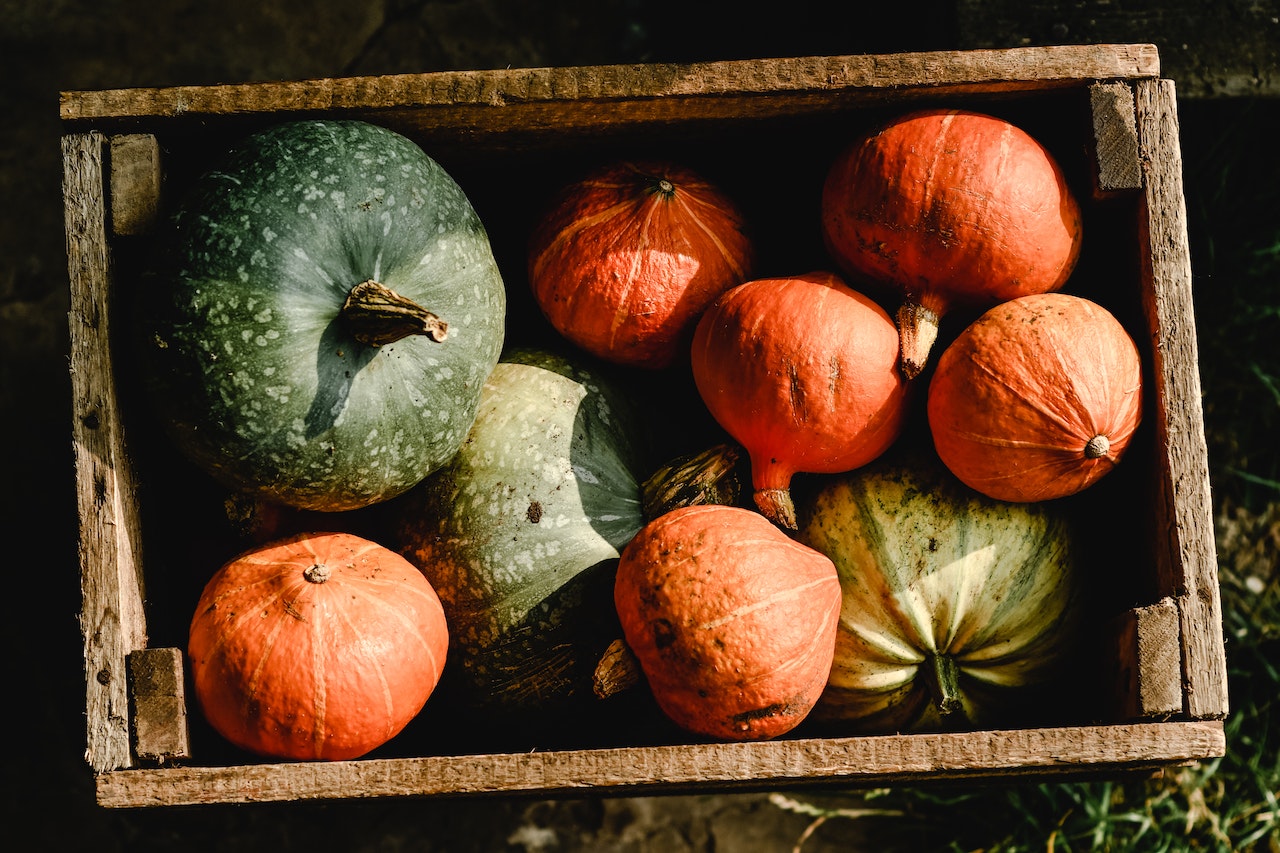The nights get darker, frosty mornings arrive and the trees put on a wonderful show of colour. Many welcome in this cosy season with open arms, but for some the cooler weather means the arrival of colds, low moods, and other physical and mental illnesses manifesting themselves. Here are our top tips to make sure that you keep your health in the best possible condition as the season changes.

1. Eat your greens
As tempting as it is to finish off all the sweets you bought for the kids at Halloween, your body won’t thank you for it. Research shows that the consumption of too much sugar is linked to increased depression, anxiety and low moods. It it therefore super important to make sure that we include lots of fruits and vegetables in our diets during the autumn and winter.
Apples are currently in season and 2022 has been an abundant year for them. There are still plenty left to be harvested – look for local gleaning groups who always need more volunteers to help pick fruit from locally planted trees. Apples are incredibly easy to store over winter by wrapping them individually in a sheet of newspaper and placing them in trays.
Autumn is also the perfect time of year to make veg-packed stews and soups. Be sure to try and include chunky vegetables such as squash, pumpkin, celeriac, carrots and parsnips – all of which are coming into season now so will be at their tastiest.
2. Practice mindfulness with spring bulbs
 One of the best ways to take a mental pause is to plant flower bulbs. Planting them now means that your days will be sure to be brightened up in early springtime with bursts of beautiful colour in your garden.
One of the best ways to take a mental pause is to plant flower bulbs. Planting them now means that your days will be sure to be brightened up in early springtime with bursts of beautiful colour in your garden.
October is the best time to get daffodil bulbs in the ground, whereas tulips can go in in November. But don’t forget about smaller bulbs like croci, snowdrops, hyacinths, irises, and bluebells. If you don’t have any spare ground to plant into, then a ‘bulb lasagne’ can be planted in a tub with impressive results. This is where flower bulbs are layered on top of one another to create an impactful display come the spring. We find that this Sarah Raven lasagne ‘recipe’ can’t be beat.
3. Get a great night’s sleep
 The clocks going back an hour in autumn can cause the best of sleep patterns to be disrupted. But a lack of sleep can have serious implications for your immune system which, in turn, can make you more susceptible to colds, coughs and other illnesses. If you’re struggling with your sleeping pattern please do read this article we published earlier in the year about how to sleep better after night shifts. A lot of the information in that article is relevant even if you’re not working shifts!
The clocks going back an hour in autumn can cause the best of sleep patterns to be disrupted. But a lack of sleep can have serious implications for your immune system which, in turn, can make you more susceptible to colds, coughs and other illnesses. If you’re struggling with your sleeping pattern please do read this article we published earlier in the year about how to sleep better after night shifts. A lot of the information in that article is relevant even if you’re not working shifts!
4. Head outdoors and breathe deeply
 As the days get shorter and the weather gets colder, it can be difficult to find the motivation to get outside and top up our serotonin levels. The lack of natural lack over winter makes our energy levels drop and this may result in low moods that can affect our day to day lives. Experiencing low moods is normal, and it is something that nearly everyone will experience at least once throughout their lives. However, if you are suffering with prolonged low moods, your first step should be to reach out to your registered GP for advice.
As the days get shorter and the weather gets colder, it can be difficult to find the motivation to get outside and top up our serotonin levels. The lack of natural lack over winter makes our energy levels drop and this may result in low moods that can affect our day to day lives. Experiencing low moods is normal, and it is something that nearly everyone will experience at least once throughout their lives. However, if you are suffering with prolonged low moods, your first step should be to reach out to your registered GP for advice.
Whilst we may not feel like exercising, getting our blood pumping and some air in our lungs is a great way to boost our mood. Combining exercise with being outside is a great way to increase both your energy and vitamin D levels. Check out this DBT article from 2021 for some excellent ideas on how to get outside locally in autumn and winter.
In Derbyshire we are blessed with lots of gorgeous areas to walk around so be sure to make the most of the local scenery this autumn and winter.


